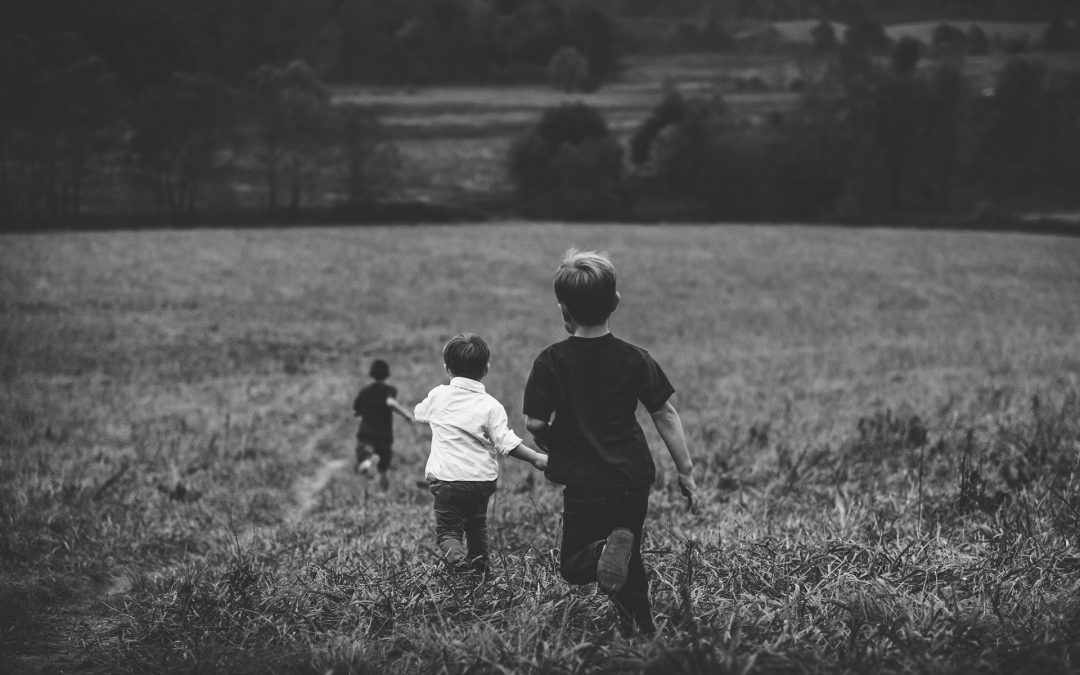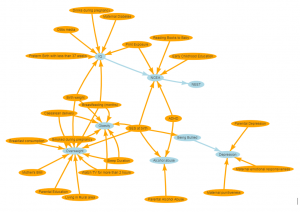By Barry Milne and Nichola Shackleton –
What can we do to get the biggest reductions in obesity, and the greatest improvements in mental health and educational outcomes for NZ children? This is the question that Knowledge Lab, an interactive policy model of children and adolescents in New Zealand, seeks to answer.
The model works by simulating children growing up from birth to age 21. Essentially the simulation model creates a virtual world that mimics the real world. The children in the simulation model have the same characteristics as real children in New Zealand (matched to 2006 births), and have the same propensity to experience good and bad outcomes as real children in New Zealand.
However, unlike the real world, we can change parameters in the virtual world and see what happens – that is, we can change environments and experiences for children to see how that impacts on immediate and later outcomes. In this way the virtual world, filled with knowledge from the real world, can be used as a laboratory to test ‘what-if’ scenarios around child development.
What if we could reduce child maltreatment? What if more children were breastfed for 6 months or more? What if we could improve the diet and activity of children? How would children’s lives improve as a result of these changes? These are the sorts of questions Knowledge Lab has been set up to answer.
The model incorporates estimates from recently published systematic reviews to determine how specific experiences and environments influence children’s outcomes – this ensures that the model uses the best estimates available (e.g., we use estimates from systematic reviews for each path in the conceptual diagram below).
So what do we find?
For obesity, reducing sedentary behaviour is important. Halving the number of children who watch television for more than the recommended 2 hours per day, reduces obesity prevalence by around two percentage points. There is also a strong influence of social determinants of health – improving socio-economic conditions for the most deprived children reduces their prevalence of obesity by 3-4 percentage points.
For education, early childhood education (ECE) has clear benefits on later school qualifications, which in turn has benefits for being in either education, employment or training by age 21. While the vast majority (around 96%) of children in New Zealand attend ECE, our model suggests that attending ECE would increase the chances of leaving school with NCEA level 2 qualifications by seven percentage points – from 60% to 67%. Reading books to children when they are in infancy also has the potential to increase the chance of later school qualifications, by around 1.5 percentage points.
For mental health, reducing maltreatment in childhood reduces prevalence of adolescent depression by around 1 percentage point, while improving socio-economic conditions has around the same sized effect.
The magnitude of these effects are – for the most part – small to moderate at the population level. However, larger effects are apparent for population subgroups. For example, reducing sedentary behaviour reduces obesity prevalence by 4 percentage points among Pacific children; reading books in infancy increases school qualification prospects for Māori by 3 percentage points; and improving socio-economic conditions reduces depression in Māori adolescents by 3 percentage points.
Our work with Knowledge Lab has shown us that single factors are unlikely to have large impacts by themselves. Rather, a number of different factors need to be changed to have large impacts on child outcomes. There is no ‘silver bullet’ policy for child wellbeing (nor for any other social policy domain, in all likelihood).
Knowledge Lab was originally designed for policy analysts working in social policy agencies, but anyone with a device and an internet connection can use the model. The model runs simulations using R software, and an RStudio’s SHINY interface allows users to programme and run ‘what-if’ scenarios and view results – an inbuilt user’s guide helps newbies to get underway.
Knowledge Lab is an evolving model. It is possible to add different components (outcomes, environments and experiences) to give a fuller picture of children’s lives, and also to update the existing estimates as newer systematic reviews become available. In this sense, the model is never ‘finished’ but will continue to be refined, in part via feedback from those it. Knowledge Lab does not have all the answers, but it is a useful starting point that can provide useful insights into the policy actions that can improve outcomes for children.
Barry Milne is the senior research fellow at COMPASS Research Centre at the University of Auckland.
Nichola Shackleton is a research fellow at COMPASS Research Centre at the University of Auckland.


